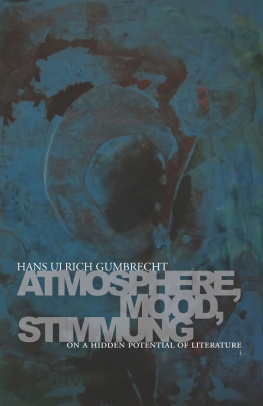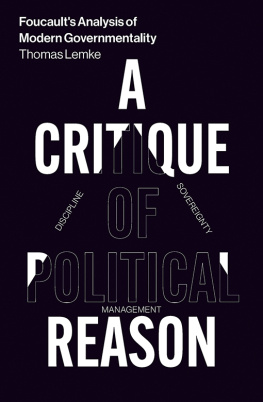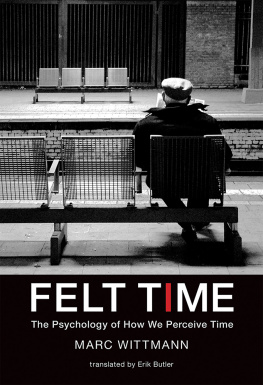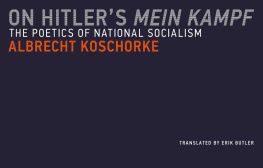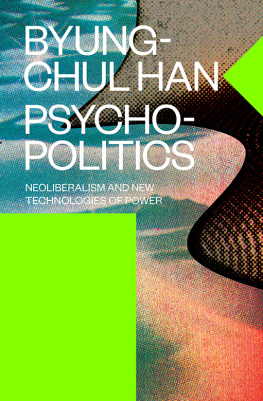Butler Erik - Atmosphere, Mood, Stimmung: On a Hidden Potential of Literature
Here you can read online Butler Erik - Atmosphere, Mood, Stimmung: On a Hidden Potential of Literature full text of the book (entire story) in english for free. Download pdf and epub, get meaning, cover and reviews about this ebook. City: Stanford;California, year: 2012;2011, publisher: Stanford University Press, genre: Romance novel. Description of the work, (preface) as well as reviews are available. Best literature library LitArk.com created for fans of good reading and offers a wide selection of genres:
Romance novel
Science fiction
Adventure
Detective
Science
History
Home and family
Prose
Art
Politics
Computer
Non-fiction
Religion
Business
Children
Humor
Choose a favorite category and find really read worthwhile books. Enjoy immersion in the world of imagination, feel the emotions of the characters or learn something new for yourself, make an fascinating discovery.
- Book:Atmosphere, Mood, Stimmung: On a Hidden Potential of Literature
- Author:
- Publisher:Stanford University Press
- Genre:
- Year:2012;2011
- City:Stanford;California
- Rating:3 / 5
- Favourites:Add to favourites
- Your mark:
- 60
- 1
- 2
- 3
- 4
- 5
Atmosphere, Mood, Stimmung: On a Hidden Potential of Literature: summary, description and annotation
We offer to read an annotation, description, summary or preface (depends on what the author of the book "Atmosphere, Mood, Stimmung: On a Hidden Potential of Literature" wrote himself). If you haven't found the necessary information about the book — write in the comments, we will try to find it.
Butler Erik: author's other books
Who wrote Atmosphere, Mood, Stimmung: On a Hidden Potential of Literature? Find out the surname, the name of the author of the book and a list of all author's works by series.
Atmosphere, Mood, Stimmung: On a Hidden Potential of Literature — read online for free the complete book (whole text) full work
Below is the text of the book, divided by pages. System saving the place of the last page read, allows you to conveniently read the book "Atmosphere, Mood, Stimmung: On a Hidden Potential of Literature" online for free, without having to search again every time where you left off. Put a bookmark, and you can go to the page where you finished reading at any time.
Font size:
Interval:
Bookmark:
ATMOSPHER E, MOOD, STIMMUNG
On a Hidden Potential of Literature
Hans Ulrich Gumbrecht
Translated by Erik Butler
Stanford University Press
Stanford, California
English translation 2012 by the Board of Trustees of the Leland Stanford Junior University. All rights reserved.
Atmosphere, Mood, Stimmung was originally published in German in 2011 under the title Stimmungen lesen 2011, Carl Hanser Verlag.
No part of this book may be reproduced or transmitted in any form or by any means, electronic or mechanical, including photocopying and recording, or in any information storage or retrieval system without the prior written permission of Stanford University Press.
Printed in the United States of America on acid-free, archival-quality paper
Library of Congress Cataloging-in-Publication Data
Gumbrecht, Hans Ulrich, author.
[Stimmungen lesen. English]
Atmosphere, mood, Stimmung : on a hidden potential of literature / Hans Ulrich Gumbrecht ; translated by Erik Butler.
pages cm.
Originally published in German in 2011 under the title Stimmungen lesen 2011, Carl Hanser Verlag.
Includes bibliographical references.
ISBN 978-0-8047-8121-3 (cloth : alk. paper)
ISBN 978-0-8047-8122-0 (pbk. : alk. paper)
ISBN 978-0-8047-8345-3 (e-book)
. Mood (Psychology) in literature.. Literature, ModernHistory and criticismTheory, etc. I. Butler, Erik, translator. II. Title.
PN56.M57G8613 2012
' 93353 dc
2011052151
Typeset at Stanford University Press in ./ Adobe Garamond
CONTENTS
R EADING FOR STIMMUNG
How to Think About the Reality of Literature Today
Over the last ten years, a mood of uncertainty has befallen academic engagements with literatureor literary science, as it is called in German. In quick succession and with varying levels of intellectual productivity, a series of theoretical paradigms dominated literary studies in the second half of the twentieth century. New Criticism yielded to Structuralism, and Structuralism to Marxism. Marxism and Structuralism gave way to Deconstruction and New Historicism. Deconstruction and New Historicism were then replaced by Cultural Studies and Identity Studies. An almost rhythmic change of the basic assumptions about literary interpretation became the norm. Since the beginning of the early nineties, however, no new theory of literature has posed a real intellectual or institutional challenge. This does not mean that there has been a lack of interesting publications, too few thinkers who command respect, or a dearth of debates. On the contrary: now that the constant pressure to revise ones epistemology has relaxed, many scholars have found more time than everand also more inspirationto concentrate on the literatures of different epochs and examine the complex historical realities that gave them their full resonance. It is no accident that we have witnessed a return to the most canonized and classical literary works. Now, without sacrificing academic honor, one can finally admit to reading them for their own sake.
Space has been freed for new inquiry. This is all the more remarkable for having long belonged to figures who were so imposing that most of their contemporaries had to declare themselves either adherents or opponents of their ideas. The fact that such illustrious personages are no longer to be found is both a symptom of, and a reason for, the change that has taken place. Literary studies cannot possibly remain the same after the loss of scholars with the distinction and intellectual vitality of Erich Auerbach, Kenneth Burke, Paul de Man, Jacques Derrida, LucienGoldmann, Wolfgang Iser, Claude Lvi-Strauss, Wolfgang Preisendanz, Richard Rorty, Edward Said, and Raymond Williams.
Today, after manifold departures, reorganizations, and metamorphoses (which, as a rule, have not been motivated by any explicit program or project), we find ourselves facing markedindeed, seemingly irreconcilable, mutually exclusivedifferences between two basic assumptions concerning the ontology of literature. (Needless to say, the actual intellectual landscape is more complicated, but I believe its structure begins with one basic divide.) By ontology of literature, I mean fundamental stances about how literary textsas material facts and worlds of meaningrelate to realities outside of works themselves.
On the one hand stands Deconstruction. Despite insistent claims of innovation, Deconstruction has always belonged to the linguistic turn of philosophy. This has meantand, for its adherents, it continues to meanthat contact between language and reality outside of language cannot occur; at any rate, suggestions to the contrary are viewed as nave and dismissed with contempt. More than any other, Derridas friend de Man positedas if it were a matter of factthat all functions of literature and modes of encountering texts, as allegories of reading, demonstrate how language does not refer to the world at all, ever.
On the other hand, there is Cultural Studies. Cultural Studies shares, at least in part, the methodological (it might be better to say: ideological) assumptions of Marxism, which it considers its precursor and point of departure. As opposed to Deconstruction, Cultural Studiesas it emerged in Great Britain and was transformed into Kulturwissenschaften in Germany (without much change)has never been skeptical about literatures connection with extra-linguistic realities. If anything, researchers in this field have so thoroughly fused their trust in the validity of quantitative and empirical research with a certain carefree attitude toward epistemology that the modest philosophical results of this convergence make Deconstruction and its rejection of reference seem almost appealing, at least in philosophical terms.
I believe that literary studies, as a site where intellectual forces combine, risks stagnation for as long as it remains stuck between these two positions, whose contrasts and tensions can cancel each other out. To overcome such dangerswhich have already materialized in partwe need third positions. The German word Stimmung (which is very difficult to translate) gives form to the third position I would like to advocate. In analogy to the notion of reading for the plot that Peter Brooks set forth some years ago, I would like to propose that interpreters and historians of literature read with Stimmung in mind. I recommend this approach not least of all because this is the orientation of a great number of non-professional readers (who are notand, of course, need not beaware of the fact).
To gain awareness and appreciation of the different significations and shades of meaning that Stimmung conjures up, it is useful to look at the various clusters of words that translate the term into other languages. English offers mood and climate. Mood stands for an inner feeling so private it cannot be precisely circumscribed. Climate, on the other hand, refers to something objective that surrounds people and exercises a physical influence. Only in German does the word connect with Stimme and stimmen. The first means voice, and the second to tune an instrument; by extension, stimmen also means to be correct. As the tuning of an instrument suggests, specific moods and atmospheres are experienced on a continuum, like musical scales. They present themselves to us as nuances that challenge our powers of discernment and description, as well as the potential of language to capture them.
I am most interested in the component of meaning that connects Stimmung with music and the hearing of sounds. As is well known, we do not hear with our inner and outer ear alone. Hearing is a complex form of behavior that involves the entire body. Skin and haptic modalities of perception play an important role. Every tone we perceive is, of course, a form of physical reality (if an invisible one) that happens to our body and, at the same time, surrounds it. Another dimension of reality that happens to our bodies in a similar way and surrounds them is the weather. For this very reason, references to music and weather often occur when literary texts make moods and atmospheres present or begin to reflect upon them. Being affected by sound or weather, while among the easiest and least obtrusive forms of experience, is, physically, a concrete encounter (in the literal sense of
Next pageFont size:
Interval:
Bookmark:
Similar books «Atmosphere, Mood, Stimmung: On a Hidden Potential of Literature»
Look at similar books to Atmosphere, Mood, Stimmung: On a Hidden Potential of Literature. We have selected literature similar in name and meaning in the hope of providing readers with more options to find new, interesting, not yet read works.
Discussion, reviews of the book Atmosphere, Mood, Stimmung: On a Hidden Potential of Literature and just readers' own opinions. Leave your comments, write what you think about the work, its meaning or the main characters. Specify what exactly you liked and what you didn't like, and why you think so.

